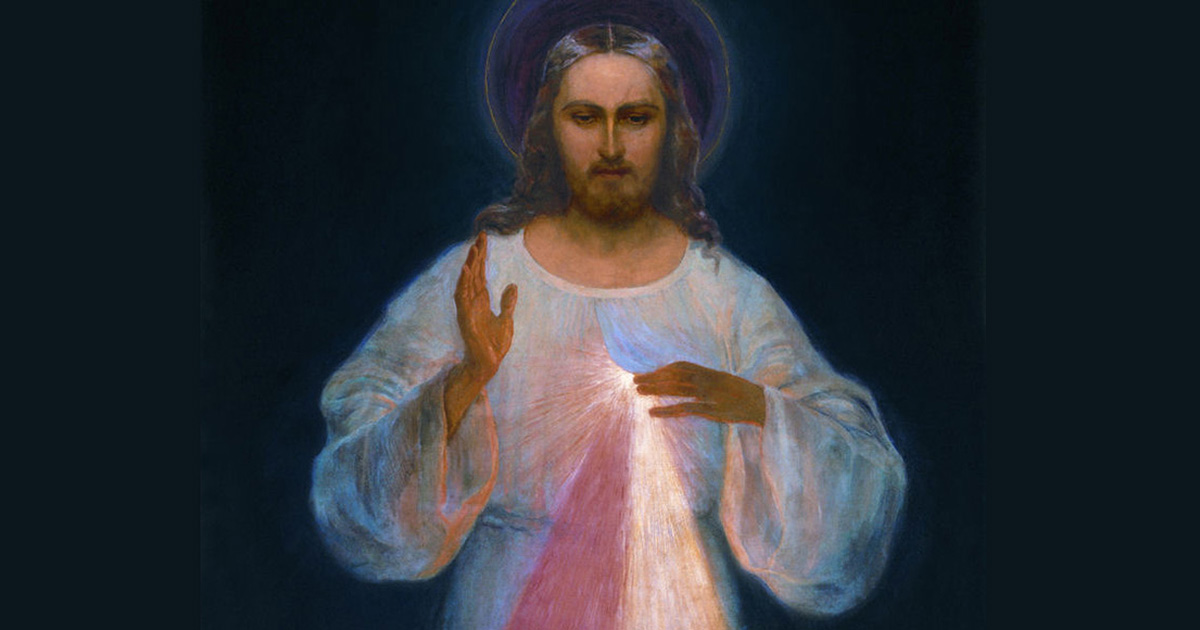St. Elizabeth Ann Seton and the Lightness of Divine Mercy
For humans, finding a balance between justice and mercy is always difficult. But St. Elizabeth Ann Seton understood that God’s grace transcends earthly limits, and allows mercy to fall lightly from heaven on our hearts and minds.
When Portia implores Shylock to show mercy upon the merchant, Antonio, in Shakespeare’s The Merchant of Venice, Shylock responds, “On what compulsion must I? Tell me that.”
This prompts Portia into one of the Bard’s most memorable, instructive (and cleverly complex) speeches.
The quality of mercy is not strain’d
It droppeth as the gentle rain from heaven
Upon the place beneath; it is twice blest;
It blesseth him that gives and him that takes…
The Merchant of Venice, Act 4, scene 1
Portia bases her argument on a concept of mercy that is not so much differently understood by Shylock (who feels like any mercy from his side must be compelled, or forced from him, in light of the law) as differently emphasized.
Judaism certainly knows and acknowledges the God of Mercy, but the traditionally-viewed privilege of studying the Talmud within Judaism means that the letter of the Law must always be considered and attended to, within any action of mercy. There is, therefore, an ever-present tension between Justice and Mercy.
We see the tension within the Gospels, where Jesus continually mediates between the concerns of the Pharisees – so entwined with law, and therefore with God’s Justice – the people, and the incontrovertible fact that God can, does, and will transcend law for the sake of love.
We even see this in the Acts of the Apostles, where the fledgling community of Christians is trying to learn how to balance reasonable concern for what is just, or “fair” – particularly in material distributions and such – against everything Jesus had taught them about giving freely, even when it seemed to counter logic:
In the Gospel of St. Matthew, Jesus says:
“You have heard that it was said, ‘An eye for an eye and a tooth for a tooth.’ But I say to you, offer no resistance to one who is evil. When someone strikes you on [your] right cheek, turn the other one to him as well. If anyone wants to go to law with you over your tunic, hand him your cloak as well. Should anyone press you into service for one mile, go with him for two miles. Give to the one who asks of you, and do not turn your back on one who wants to borrow.
“You have heard that it was said, ‘You shall love your neighbor and hate your enemy.’ But I say to you, love your enemies, and pray for those who persecute you, that you may be children of your heavenly Father, for he makes his sun rise on the bad and the good, and causes rain to fall on the just and the unjust.
(Matt 5:38-45)
This discourse of Christ’s could not help but be a radical bit of business for the first century Jews. It threw a wild, untamed weight of Mercy onto the delicate scales of perceived Justice, all willy-nilly, without care for outcomes.
Up until then, those scales had been used as a means of justifying mercy, as it were, of meting out mercy within the parameters of the law and the hard-old world – itself so inclined toward vengeance and harsh measures meant to maintain control over the caprices of human minds and hearts.
Now, and quite abruptly, the earliest Christians were being challenged to disregard those weights and measures that held their society together, and that required some willing negotiation and, of course, spiritual growth.
The tension by which we consider justice and mercy – deciding almost daily what both look like and how (and to whom) they may be dispensed – is still with us.
Whether the concerns are religious or civic, we tend to choose a side, or an ideology, and then seek harsh justices for some, extreme mercies for others. For evidence that this is so, I refer you to any portion of social media.
The truth is, whether we are people of faith or agnostic, whether we might be called “bleeding hearts” or “dogmatists,” the human heart is forever struggling to justify extending mercy toward one person even while turning a blind eye to the same action in the other. It’s human nature.
And this is why humans cannot truly be trusted to figure out mercy.
We actually can do alright on the justice front – particularly if we have not permitted our own biases to infringe on the process. Our Judeo-Christian heritage has given us enough wisdom to consider that – whether in the confessional or the courtroom – intention matters. Just as intention defines whether a death is murder, or manslaughter, or reckless disregard or a true accident, so does it inform us whether our sins are soul-threateningly mortal, or more purgatorial and venial in nature.
On mercy, however, we tend to stumble, possibly because when the whole idea of unconstrained mercy is suggested to us, our own wounds, scars, resentments, rear up, reminding us when perhaps we were in need of mercy, and were not shown it. Or, perhaps we were shown mercy and squandered it. Either way, mercy does not rest as easily in the conscience as justice can, which is perhaps why it does not spring from us as often as it should.
And that’s why Divine Mercy Sunday is so very important – why when Pope St. John Paul II instituted the observance in 2000, he gave us a profound gift by inextricably tying our understanding of Easter to Mercy, and sending us off into Pentecost with this reminder: We have been shown mercy – Divine Mercy, Unconstrained Mercy, Undeserved Mercy – by Christ’s selfless act, which ransoms us from our worst selves, if we will only permit it. That, for the sake of his sorrowful passion, God in heaven has put a premium on Mercy. He has given over Justice to Christ, for the sake of his own Being, which is 100% love, and can therefore be nothing else.
St. Elizabeth Ann Seton lived in an era between Shakespeare’s words on Mercy and John Paul II’s action. But she would have understood them both perfectly, as she was well-acquainted with the mercy of God and the sort of gratitude with which we should answer it, and then model it for others:
“Do I realize it? The protecting presence, the consoling grace of my Redeemer and God. He raises me from the dust to feel that I am near Him.”
Being raised up from the dust with the reassurance that we’re drawn to God, and finding our troubled soul’s consolation there? That’s the very definition of a mercy that is not strained, but Divine.
ELIZABETH SCALIA is the award-winning author of Strange Gods, Unmasking the Idols in Everyday Life and Little Sins Mean a Lot: Kicking Our Bad Habits Before They Kick You.
Source: https://setonshrine.org/
Tags:








0 Comments